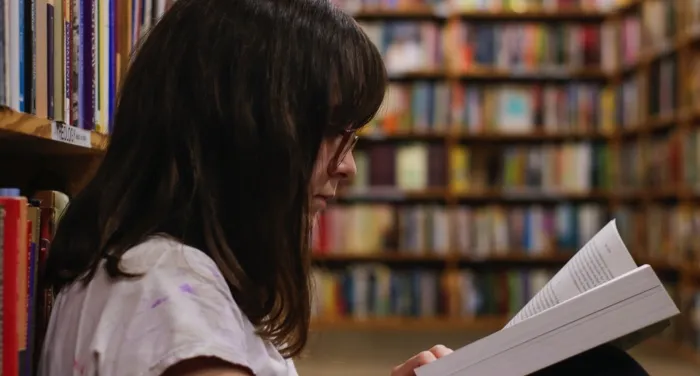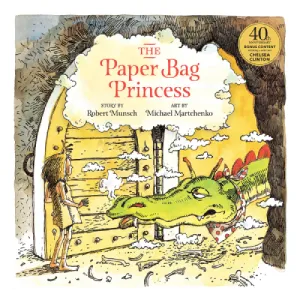
Staying Connected as a Solo School Librarian
Before I became a solo school librarian, I worked on a team. While I wasn’t yet living my true dream (hello, punk-ass book jockey), I heartily enjoyed being a 1st grade teacher. I knew the content well and loved coming up with fun ways to get my students engaged. I adored sending home book order forms and watching the magical mid-year click where students began synthesizing all the skills we had been drilling into actual reading. More than anything, I appreciated working with three or four other first grade teachers all year long. My school provides common planning and lunch periods. We would meet over the summer to map out the curriculum. We would vent at lunch about difficult lessons. We went on field trips together and worded emails together sent mass groups of students to second grade together, year after year.
So when my greatest ambition became reality, and I found myself plopped in the wondrous world of the school library, it took a few months for me to realize what was missing from my new educational career. I was on my own, without a team. While some schools are able to employ more than one certified librarian, it’s a pretty rare thing. I myself am still plugging away at classes, working towards the official certificate that will turn me from an early childhood educator to a Library Media Specialist. So how’s a solo school librarian to find a friend? I’m here to share the tips I’ve used to keep myself surrounded by some of my profession’s best. If you’re not assigned to a group of like-minded educators, you need to head out and find them, and once you’ve identified your people, you’ll feel much more at home.
Teach Me! The Case for Going Back to School
This first tip is a bit of a divider. There are lots of wonderful librarians who feel that insistence on a degree to enter the field is classist, keeping out those who cannot afford the prohibitive costs (see: time and money) of pursuing a Master’s of Information and Library Science. I mostly come across this argument when people are working in public libraries, and I can see their point. When working in a public library with other professionals, it is very probable that one could achieve all the knowledge needed from a combination of on-the-job training, personal experience, and engagement with professional organizations and active voices in the library community. However, this was one spot where my school library situation did not align. There was no on-the-job training when no one else in my building had the same job that I was entering. When I became a solo school librarian, I was very knowledgeable about children’s literature and a seasoned classroom educator. Neither of these facts completely equipped me to develop and maintain a collection, develop and maintain appropriate borrowing guidelines, adapt a space to serve all members of my school community, develop a standards-based curriculum that addresses news media literacy and proper citations, and a bevy of other tasks required of a competent library media specialist. This is where my classes came in. In Massachusetts, it is a requirement that all educators on a teacher’s contract get their Master’s degree, and even after I satisfied this requirement, the state asked me to take more classes specific to the library to be officially certified. This is a lot, but I’m so glad it was asked of me. In my classes I have met library professionals who have taught me best practices, shared tips and tricks, pointed me to journals and hashtags that enrich my teaching, and helped me establish my mission as a library media specialist serving a school community I love. I recognize that I have a lot of privilege to be able to continue my education the way I have, but if you can find a way to take even one library-specific course, it can be enormously helpful.Professional Organizations: More than Tote Bags
When I was a classroom teacher, my interactions with my professional organizations were largely based on which kinds of discounts I could get at the bookstore when flashing my card. For rejuvenation and development, I relied on my team, or classroom teachers I spent time with at a district level. However, once I became a solo school librarian, these organizations became my lifeline. The largest organization serving school libraries is the American Association of School Libraries (AASL), a branch of the American Library Association (ALA). The AASL publishes the standards and curriculum frameworks for school libraries, helps librarians advocate for their programs to administration and the community, and holds conferences for school librarians to come together and share ideas or best practices. Many states have smaller specific organizations operating under the AASL. In Massachusetts, we have the Massachusetts School Library Association, which meets the same goals in a way specific to our area. I look forward every year to our local conference—I’m not always able to travel around the country for larger gatherings of librarians, but I always make time for two days spent at a nearby hotel, attending small sessions with Mass librarians who are making incredible things happen at their schools. Even though I’m only in my third year as a school librarian, I’ve already used professional conference time to make some friends across longish distances (Mass is small), and we follow along on each other’s journeys through the magic of the internet. That is to say, I steal ideas from them frequently. Have I had to swallow awkwardness and get used to bluntly asking people for their social media handles? Yes, but they are typically so relieved to be asked and grateful for the connection. We’re often in the same boat! Even accounting for a wide range of spaces, budgets, and school populations, there are SO many common threads that connect school librarians, and so much to be gained by having even a digital chance to observe each other.I Like To Watch!
Speaking of observing each other, get yourself into another school library and watch. This is easier said than done, I know, but the wealth of knowledge available from even one spying session can keep a solo school librarian going for quite awhile. Due again to my need to take classes in Library Science, I had several requirements to wrack up observation hours in school libraries. So far I’ve finished up just over 50 hours, and they have changed my life as a librarian. I have notebooks full of ideas, book recommendations, turns of phrase, and other amazing tidbits that have helped me fully inhabit my library and support my students. There are certain obstacles that no amount of digital connection can overcome, and there is nothing like seeing the way a librarian turned her awkward atlas stand into an interactive biography display to motivate you in your own space. I also gathered so much insight on how to guide students through book recommendations, how to gently and clearly enforce library policies, and how to juggle the two crucial roles of teaching students and maintaining a fully functioning library. More than anything, I left my observation days reminded of the effect a librarian has on their school setting, which is something that can be hard to see unless you’re observing it from the outside.The Magical World of the Internet
When all else fails, there’s always social media. While Twitter and Instagram can really exhaust me when I’m poking into certain subjects, the negatives are certainly balanced by the ability to connect with professionals all over the country and all over the world. As far as the internet is concerned, I’ve found equal weight in following librarians and following diverse book publishers, as both have kept my mind in the right place to continue developing a collection that reflects and uplifts the students in my school.Hashtags like #LibrariansOfInstagram, #ElementaryLibrarian, and #SchoolLibrarian have led to hours of interesting browsing, and I find that both classroom teachers and school librarians have helped me feel connected to my profession. Educational influencers like Vera Ahiyya (@thetututeacher) and Adrienne Wiggins (@adrienne_teaches) have been of enormous help to me in celebrating new releases and organizing great ways to diversely celebrate things like Read Across America Week and Women’s History Month. Librarian specific content from accounts like @johnnyappleseedlibrary, @thebookwrangler, and @mrsreaderpants has been helpful in planning lessons and evaluating different ways to make a short library period hit many different goals. And accounts like Lee and Low (@leeandlow) and We Need Diverse Books (@weneeddiversebooks) keep awesome books on my radar that break out of the white straight colonial perspective that a vast majority of books reinforce. I’m just dipping my toe into the world of being a Library Media Specialist, and every year I add more tools to my toolbox. Having the honor of holding this job is precious to me, even if it means I have to work harder to make connections when living the solo school librarian life. Are you a solo school librarian? How do you work to maintain connections in your profession? I’d love to be your friend!












